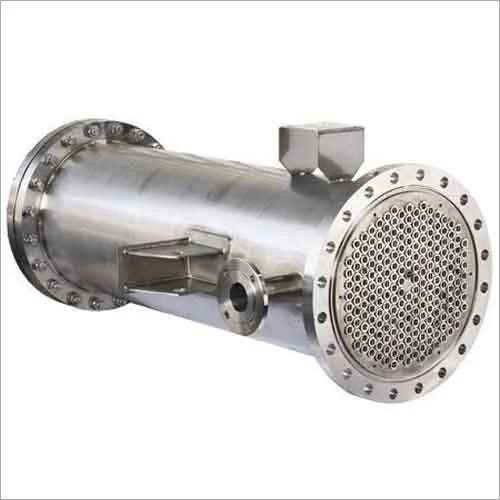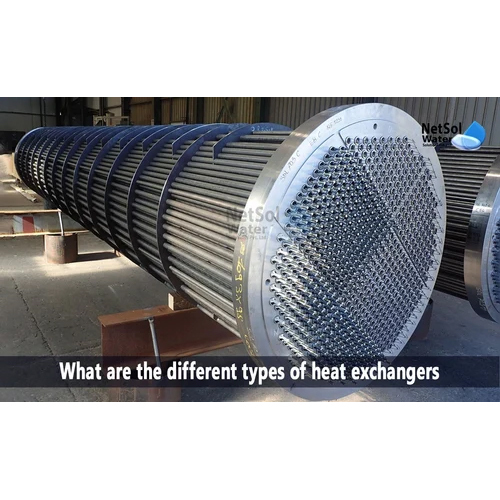Stainless Steel Heat Exchanger
Product Details:
- Product Type Heat Exchanger
- Color Silver
- Thickness Different Available Millimeter (mm)
- Usage Industrial
- Size Different Available
- Condition New
- Click to View more
Stainless Steel Heat Exchanger Price And Quantity
- 200000 INR/Unit
- 1 Unit
Stainless Steel Heat Exchanger Product Specifications
- Heat Exchanger
- Different Available Millimeter (mm)
- Silver
- Industrial
- New
- Different Available
Stainless Steel Heat Exchanger Trade Information
- Cash Advance (CA)
- 10 Unit Per Month
- 30 Days
- All India
Product Description
In order to transmit heat between two fluids while keeping them apart, a stainless steel heat exchanger is a sort of heat transfer equipment. Due to its corrosion resistance, thermal conductivity, and hygienic qualities, stainless steel is chosen as the building material. This makes it suitable for a variety of applications, including food and beverage, pharmaceuticals, chemical processing, and HVAC systems.
A stainless steel heat exchanger has the following important qualities and advantages:
1. Construction: In order to give good resistance to corrosion and erosion brought on by the fluids being treated, stainless steel heat exchangers are commonly built using stainless steel tubes or plates. The heat exchanger's lifespan and durability are guaranteed by its stainless steel structure.
2. Efficiency of Heat Transfer: Because stainless steel has strong thermal conductivity, the two fluids used in the process may transfer heat more effectively. Effective energy recovery and ideal heat exchange performance are made possible by the high heat transfer efficiency of stainless steel heat exchangers.
3. Due to its great corrosion resistance, stainless steel is ideal for applications involving corrosive or aggressive fluids. Even in difficult operating settings, the heat exchanger's integrity and lifespan are supported by its corrosion resistance.
4. The ease of cleaning and maintenance of stainless steel makes it perfect for applications demanding high levels of hygiene, such as those found in the food and pharmaceutical industries. Stainless steel's smooth surface prevents impurities from building up, making thorough cleaning easier and guaranteeing product purity.
5. Versatility: Shell and tube, plate, and finned tube designs are just a few of the different heat exchange configurations that stainless steel heat exchangers can be made for. Due to its adaptability, it is possible to customise a process to fit a particular flow situation.
6. Water, steam, gases, and a variety of liquid media are all compatible with stainless steel heat exchangers, among other fluids. They are excellent for a variety of industrial operations since they can handle high-temperature and high-pressure applications.
7. Durability and Reliability: The heat exchanger's long-term performance and dependability are guaranteed by stainless steel's resistance to corrosion and durability. Compared to heat exchangers constructed of other materials, stainless steel heat exchangers have a longer useful life, which lowers maintenance and replacement expenses.
To choose the best stainless steel heat exchanger design, size, and configuration for your unique requirements, it's necessary to take into account the particular requirements of your application and speak with a skilled engineer or heat exchanger manufacturer.
Product details
| Type | Coil |
| Medium Used | Oil |
| Usage/Application | Food Process Industry |
| Grade | SS 304 |
| Material | Stainless Steel |

Price:
- 50
- 100
- 200
- 250
- 500
- 1000+
Other Products in 'Heat Exchangers' category
 |
DEVJOGI ENGINEERING
All Rights Reserved.(Terms of Use) Developed and Managed by Infocom Network Private Limited. |

 Send Inquiry
Send Inquiry



